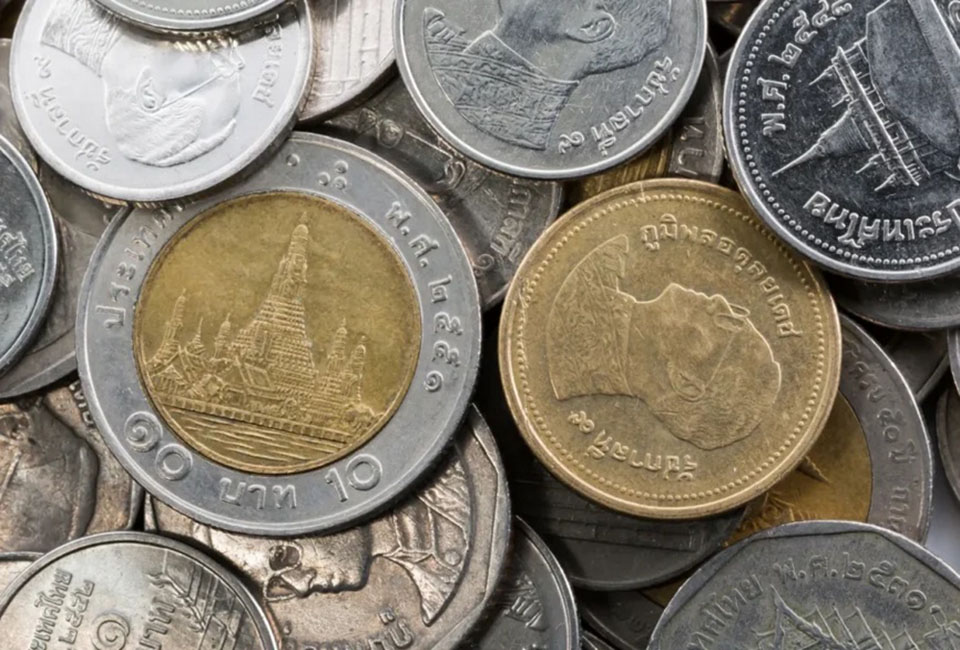
BANGKOK, Thailand – The Thai baht opened in the morning (April 11) at 33.83 per US dollar, significantly strengthening from the previous close of 34.15. Analysts expect the currency to fluctuate between 33.70 and 33.95 over the next 24 hours, cautioning against possible volatility due to upcoming U.S. economic data releases.
The baht’s appreciation has broken through a key support level of 34.00, supported by a surge in global gold prices reaching a new all-time high. This came amid a return to “risk-off” sentiment in U.S. financial markets following rising trade tensions. The U.S. has confirmed import tariffs on Chinese goods will reach 145%, including an additional 20% penalty over China’s failure to stem fentanyl trafficking.
Adding to the pressure on the dollar, the U.S. Consumer Price Index (CPI) for March eased to 2.4%, slightly below expectations. Core CPI also dipped to 2.8%, prompting speculation that the U.S. Federal Reserve may cut interest rates up to four times this year, with a current market probability of 68%.
Meanwhile, the Japanese yen has also strengthened, breaching 144 yen per dollar, and U.S. bond yields rose toward 4.5% due to continued sell-offs, possibly tied to the unwinding of basis trades. The shift has increased demand for safe-haven assets like gold, boosting prices and contributing to the baht’s momentum.
Looking ahead, market participants will closely watch the U.S. Producer Price Index (PPI) and the University of Michigan Consumer Sentiment report, particularly inflation expectations. Comments from Federal Reserve officials will also be key to shaping rate cut forecasts.
In Europe, attention turns to ECB policy signals, with expectations building for three rate cuts this year. The UK will release industrial production data, which may offer insights into broader economic trends.
Despite the baht’s sharp rally, analysts caution that appreciation may slow due to risk-off sentiment still weighing on financial markets. Foreign investors may continue to sell Thai assets, and gold prices could retreat if no new supporting factors emerge.
Dividend payments to foreign investors are also expected to flow out of Thailand soon, potentially slowing the baht’s rise. Meanwhile, lower global oil prices and a stronger baht could spur increased Thai energy sector imports, providing another brake on further appreciation.










